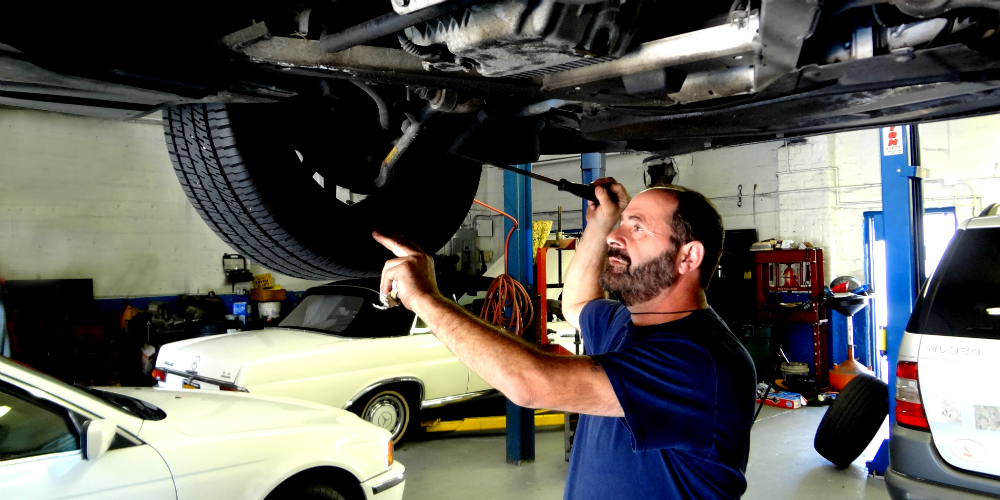All Categories
Featured

[/image]

When it comes to lorry upkeep, the brakes are probably the most important system for guaranteeing your safety. Routine brake assessments are necessary to keeping your braking system in leading condition.
- Why Brake Inspections Are Crucial. Brakes are designed to use down with time, but without normal evaluations, you might not discover when they come to be less reliable. A defective brake system can bring about significant crashes, raised repair service costs, and even the demand to replace other car parts.
Brake assessments not only help you catch potential issues prior to they rise, however they likewise permit much better braking performance, raised vehicle life-span, and improved safety and security.
- Recognizing Indication for Brake Issues. While regular evaluations are very important, you don't have to wait up until your vehicle's following visit to the mechanic. Expect these indication that might suggest it's time for an assessment:
Unusual Sounds: A piercing squeal or grinding noise when using the brakes usually indicates that the brake pads are worn down or damaged. Soft or Spongy Brake Pedal: If the brake pedal feels soft or squishy when pressed, there might be air or moisture in the brake lines, or the brake liquid may be low. Drawing to One Side: If the lorry draws to one side while braking, it might indicate uneven brake pad wear or a hydraulic problem in the brake system. Vibration in the Wheel or Pedal: If you experience vibration or pulsation when stopping, it may be a sign of deformed rotors or uneven brake pad wear. Boosted Stopping Range: If it takes longer than typical to bring your cars and truck to a stop, it might be time to inspect the brake pads, liquid degrees, or blades. If you see any of these indicators, it's finest to have your brakes examined promptly by a professional.
- Trick Elements Checked During a Brake Examination. During a brake examination, a qualified technician will take a look at a number of vital components of the brake system to ensure they're working effectively. Some of the most fundamental parts to examine include:
Brake Pads: These are the friction material that presses versus the brake rotor to reduce down the vehicle. Over time, the brake pads put on down and require replacing. Brake Rotors: Rotors are the metal discs that the brake pads clamp down on. They ought to be smooth and cost-free of deep grooves or fractures. Brake Fluid: The brake fluid transfers the force from the pedal to the brakes. Reduced liquid degrees or old, polluted liquid can result in bad stopping performance. Brake Lines: Brake lines carry fluid from the master cylinder to the brake components. They need to be checked for leaks, cracks, or damage. Brake Calipers: These secure the brake pads onto the blades. They must be in excellent working order and complimentary of leaks. On a regular basis examining these parts guarantees your stopping system operates efficiently and assists you prevent harmful driving circumstances.
- How Usually Should You Get Your Brakes Examined? The regularity of brake assessments depends on your driving practices and the kind of automobile you have. As a general standard, it's suggested to inspect your brakes a minimum of annually or every 12,000 miles. If you drive in heavy traffic, regularly lug hefty lots, or drive on uneven terrain, more regular assessments might be essential.
It's likewise a good concept to have your brakes examined if you observe any one of the indication pointed out previously, as this can prevent more serious concerns.
- The Price of Ignoring Brake Inspections. Neglecting routine brake assessments can result in severe repercussions. Worn brake pads, harmed blades, or reduced brake fluid can trigger your braking system to stop working when you require it most. Along with the security threats, disregarding brake maintenance can bring about expensive repairs in the future.
For instance, if the brake pads are not replaced in time, the damages might reach the rotors, leading to the demand for blades substitute-- an expensive repair. By scheduling normal brake inspections, you can avoid these costly fixings and maintain your stopping system in good problem for longer.

- What Happens During a Brake Examination? A specialist auto mechanic will certainly do a comprehensive evaluation of your automobile's stopping system, consisting of looking for the adhering to:
Brake Pad Density: Brake pads require to be replaced when they have used down to a specific density. Blades Condition: The mechanic will certainly inspect the rotors for indications of wear, warping, or scoring. Brake Fluid Degree: Low brake fluid can affect braking efficiency. The auto mechanic will inspect the fluid degree and replenish it if needed. Brake Line Honesty: The brake lines will be evaluated for any leaks or fractures that might compromise the brake system. When the inspection is complete, the technician will certainly inform you of any kind of essential fixings or substitutes.
Conclusion: Remain Safe with Regular Brake Inspections. Your brakes are important to maintaining you and your passengers safe on the roadway, so normal brake assessments should never ever be overlooked. By focusing on indication, organizing regular brake checks, and dealing with concerns without delay, you can guarantee that your brakes are always in top shape.
Don't wait until your brakes stop working-- stay positive about brake upkeep. A tiny financial investment in brake examinations today can conserve you from costly repairs and harmful scenarios in the future.
Latest Posts
Unlock WyHy Federal Credit Union – Top Benefits for Your Financial Future
Discover Premier Car Repair Services offered by Montclare Auto Repair – Drive with Confidence
Uncover Montclare Auto Repair’s Most Popular Auto Repairs and Why Drivers Rely On Them
More
Latest Posts
Unlock WyHy Federal Credit Union – Top Benefits for Your Financial Future
Discover Premier Car Repair Services offered by Montclare Auto Repair – Drive with Confidence
Uncover Montclare Auto Repair’s Most Popular Auto Repairs and Why Drivers Rely On Them